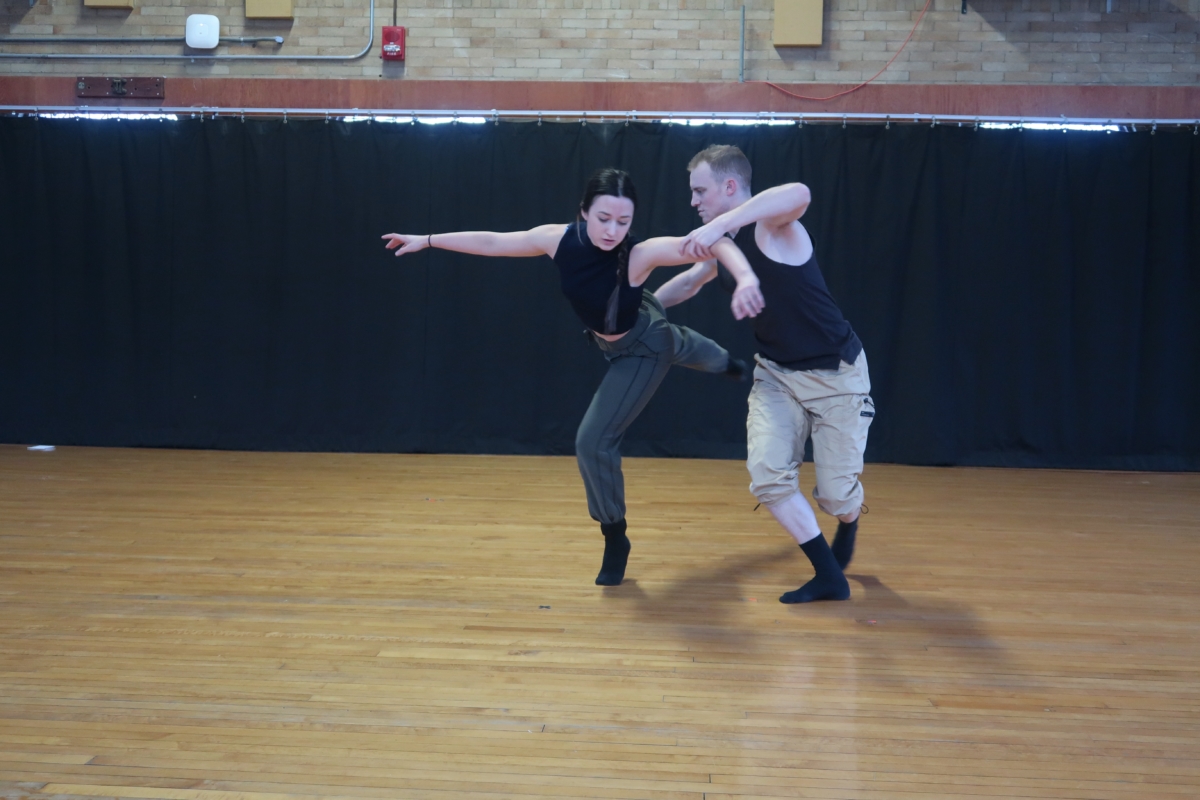Each year, GroundWorks is proud to facilitate its very own Choreolab. Conceived by Executive Artistic Director David Shimotakahara, and assisted by Education and Community Engagement Coordinator Rebecca Burcher, this two and a half week program is dedicated to the exploration of the creation process through the lens of a choreographer. Each company dancer is given time, space, and dancers to play, explore, and develop a new work. The emphasis during this time is on process rather than product: Choreolab serves as an opportunity for GroundWorks artists to step into their own as choreographers at the front of the studio.
This year, for the first time, GroundWorks dancers teamed up with five composers from the Technology in Music and Related Arts (TIMARA) Department at the Conservatory of Music at Oberlin College to collaborate on their new projects. This new partnership echoes a longstanding relationship between GroundWorks and Oberlin College. Peter Swendson, Associate Professor of Computer Music and Digital Arts, collaborated with David Shimotakahara on the work LUNA in 2013. Peter has also collaborated twice with Artistic Associate Amy Miller in her creation of new work for the company – Valence in 2009, and Running to Earth in 2011. It was fitting, then, that he and Rebecca Burcher lead an orientation day between the composers and dancers that served as a jumping off point in discussing ideas and process.
In the end, each team of dancers and composers only had twelve hours in studio to create together. Each approached their collaboration from a different angle, resulting in vastly diverse movement and sound studies. For example, a work entitled Polk-ish, created by Nicole Hennington and Kat Mtedazur, drew from their shared fascination with Polish folk dance and music and how it might be combined with more contemporary sensibilities. Vivid Fantasies for a Monochrome Life, by Michael Arellano and Marly Gonzalez, explored how speech can be manipulated in terms of time and pitch and how that impacts movement and the onstage environment. Spencer Dennis and Will Betrand explored how the body could interact with live feedback to create an interactive sound score for dance in a piece entitled Lode. Piper Hill’s scores with Rebecca Burcher, in an instant everything and nothing will have changed, and Micky Esteban and Nicole Golonka, Yours/Mine, were created in response to set movement and cued live during the showings. Alexis Britford and Margret Jackson were invested in how childhood hand games stayed with us as we grew up in their work Vestige, and Annie Morgan’s untitled collaboration with Marly Gonzalez played with the idea of building movement and sound vocabularies based off of the written word.
Choreolab culminated in two informal showings, one at Oberlin College and one at Cleveland State University, each followed by a short question and answer with the artists. GroundWorks is grateful and appreciative to the TIMARA composers for their time, energy, and openness during this process, and looks forward to more collaboration and creation in the years to come.

